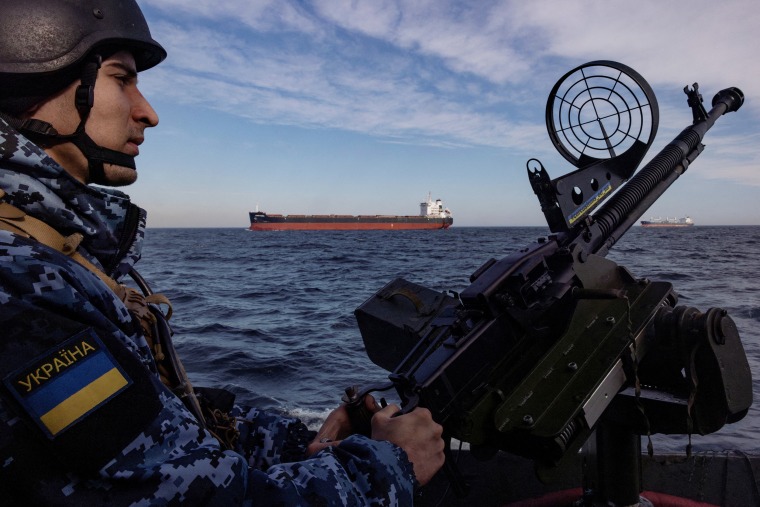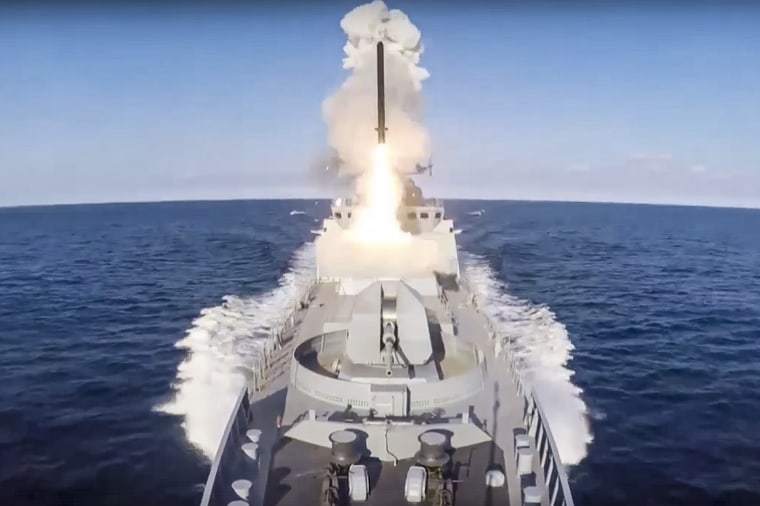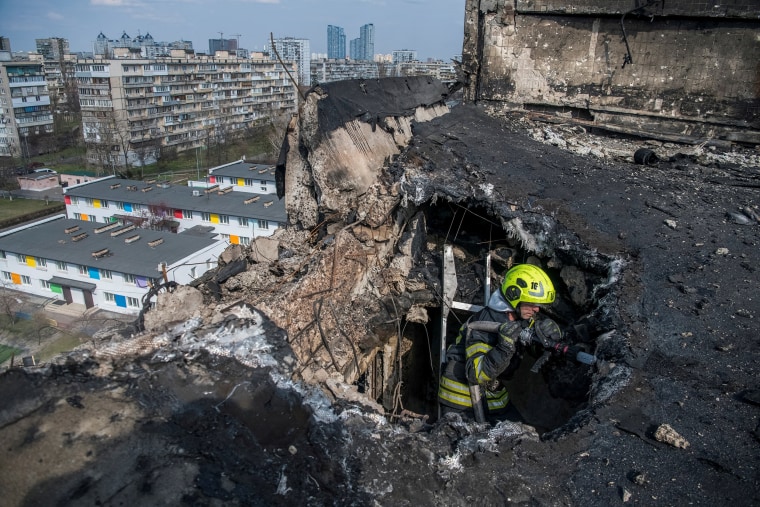The American-brokered deal for a maritime ceasefire between Russia and Ukraine looks little more than a dream Kremlin wish list and another example of President Donald Trump’s handing concessions to Vladimir Putin, some Western analysts warned Wednesday.
An American delegation has been negotiating separately with Russian and Ukrainian officials in Saudi Arabia in an attempt to fulfill Trump’s promise to quickly end the fighting in Eastern Europe. On Tuesday, the White House said it had reached an agreement with both parties for a truce over the Black Sea, a strategic body of water bordering Ukraine, Russia and four other countries, including Turkey, a major U.S. ally and NATO member.
However, the terms of the tentative deal are enormously favorable for the Kremlin — with few upsides for Ukraine, according to many Russia watchers in Europe and the United States.
“It is unsurprising that the Americans have agreed to most, if not all, of Russia’s demands,” because “the U.S. wants almost any deal,” said James Nixey, head of the Russia-Eurasia program at the London think tank Chatham House. Washington “is no longer an honest broker in these diplomatic negotiations,” he added, “because it clearly wishes to pursue the normalization of relations with Russia at the expense of Ukraine’s demands, ambitions and desires.”

The White House did not immediately respond to a request for comment.
The American delegation negotiated separately with the Ukrainian and Russian teams, with the White House releasing different statements afterward corresponding to each round of talks.
Its statement relating to Ukraine said they had agreed to a ceasefire over the Black Sea while working toward halting attacks on energy infrastructure. That could stop the nightly fleets of Russian drones that pummel Ukraine’s civilian power grid. But Ukrainian officials say it’s more likely to benefit Russia by halting Kyiv’s campaign of targeting oil refineries fueling the Kremlin’s war.
“These are really gifts to Russia,” said Oleksii Tsymbalyuk, 50, a sergeant in the Ukrainian armed forces. He said it was “dubious” whether Russia would in, fact stop, bombing Ukraine’s civilian power grid.
Russia falsely claims it has already been honoring an energy-grid ceasefire since March 18. Dmytro Lytvyn, an adviser to Ukrainian President Volodymyr Zelenskyy, said Tuesday that that showed that “Moscow is a city built on lies” and that “the Russians are lying even when the truth is obvious.”
Arguably an even bigger concession came in the White House statement relating to Russia, which said it would “restore Russia’s access to the world market” for agricultural and fertilizer exports.
“This agreement would basically drive a coach and horses through the present sanctions regime,” Phillips O’Brien, an international relations professor at Scotland’s University of St. Andrews, wrote on Substack. “Any Russian company that claimed to be working in ‘agricultural and fertilizer’ products would be allowed to ship goods in and out of Russia.”
Russia would also benefit far more from the maritime ceasefire itself, many experts say, because it has suffered most from Ukraine drone attacks on its historically powerful Black Sea Fleet.

“As predicted. Trump rushes to give Putin everything he wants for nothing,” Russian chess champion-turned-democracy campaigner Garry Kasparov wrote on X. “Nothing for the U.S., nothing for Ukraine, everything for Russia, which is still bombing Ukrainian civilians every day.”
Western military experts say Russia has less incentive to sign a ceasefire than Ukraine after Moscow’s recent gains on the battlefield and its sense that a more amenable president is now in the White House.
As has been the case with previous rounds of negotiations, there were indications that the White House and the Kremlin did not share the same understanding of the details of the deal. A Kremlin readout Tuesday suggested that a firm agreement had not yet been reached. It said the Black Sea truce will go into force after a series of sanctions are lifted.
But Kremlin spokesman Dmitry Peskov said Wednesday that Russia was “satisfied with how pragmatically and constructively our dialogue is developing. This time, justice must prevail, and we will continue our work with the Americans.”
Trump was asked whether Putin was playing for time in an interview with Newsmax on Tuesday.
“It could be they’re dragging their feet,” Trump said, adding that he had “done it over the years” when “I don’t want to sign a contract” but “I want to sort of stay in the game.” Ultimately, he said, “I think Russia would like to see it end. And I think Zelenskyy would like to see it end at this point.”
It’s unclear when the ceasefire might come into force — if it’s practically workable at all.
The Kremlin readout said it would begin only once international banking restrictions were lifted and Russia was reconnected to the vital SWIFT global financial payments system. Trump told reporters Tuesday that his team “will be looking at” those stipulations.

But agreeing to lift those sanctions, imposed after Putin invaded Ukraine three years ago, would require the cooperation of Europe. Unlike Trump’s warming ties, Europe has remained steadfastly opposed to Putin.
That sets up a potential flashpoint between Washington — eager to push through the deal — and Europe — most likely resistant to easing sanctions.
“It is essential that Europeans don’t fall for this U.S./Russian stitch-up, which will strengthen Russia, weaken Ukraine, and undermine the security of the rest of Europe,” Ian Bond, deputy director of the Centre for European Reform think tank, wrote on the Bluesky social media platform.
Zelenskyy said Tuesday evening that the ceasefire would begin immediately. But, he said, “there is no faith in the Russians” to honor the agreement, and he suggested he would ask Trump for additional weapons and sanctions if it were breached.
“We do not trust them. And frankly, the world doesn’t trust Russia,” he said. “They must prove that they are truly ready to end the war, ready to stop lying to the world, stop lying to President Trump and stop lying to America.”

